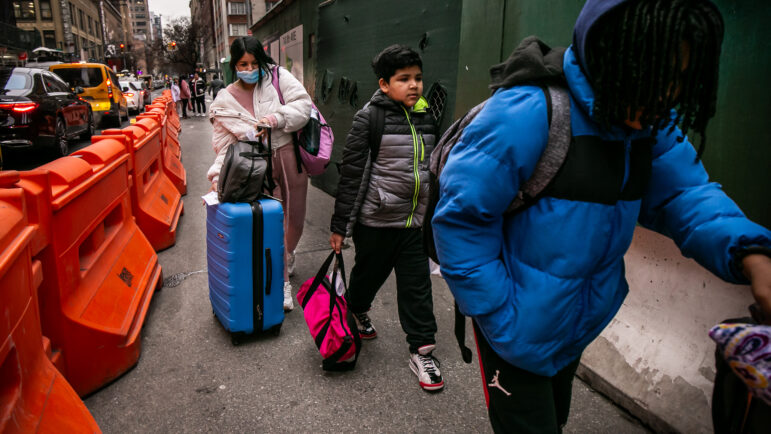Last week, 13-year-old Ashley Sims died in a fire in Bedford-Stuyvesant. Her death is not just a tragedy–it’s a scandal, partly due to the failures of the city Department of Housing Preservation and Development.
City Limits has learned that the city housing department knew last October that the sprinkler system was faulty in the 4-story building at 27 Brevoort Place. But despite the fact that the housing agency’s own policies indicate that it should correct this emergency condition within 24 hours, records show the repairs were not made.
According to HPD records, inspectors issued two “C” level violations for the building last fall, violations that are given for “immediately hazardous” conditions. The inspector’s report of October 5 indicates that part of the sprinkler in the basement public hallway was missing. A second inspection, dated October 20, reported “sprinkler system altered and test valve removed” in the fourth story public hallway.
But when fire broke out July 22, the sprinklers still were not functioning. Fire officials said the blaze, apparently set by an arsonist on the second-floor stairwell, raced up the stairs to the third and fourth floors. Sims, trapped on the third floor, died in the fire. As many as 18 others were injured, including 10 firefighters.
The Fire Department is still investigating the blaze, but officials at the scene pointed to the sprinkler system: “The building is sprinklered, but the sprinkler did not operate,” Chief Fire Marshal Louis Garcia told the Daily News.
Under HPD rules, C violations require the landlord to fix the problem by the next day. If the landlord fails to do so, the housing agency itself is supposed to do the job and bill the owner for the repairs.
But housing advocates and tenant organizers report that this rarely happens–instead, “emergency” maintenance problems often go uncorrected for months. “They rarely do it,” said Kenny Schaeffer of Legal Aid’s Harlem office. “Occasionally I’ll see a building with 100 C violations, and nothing happens.” HPD did not return calls for comment.
In fact, many advocates charge that the entire housing code enforcement system is a shambles, lacking sufficient inspectors, attorneys or follow-through to make sure repairs get done. “It’s a scandal, one of the city’s dirty little secrets,” said Schaeffer. HPD recorded more than 18,000 emergency violations in the first four months of fiscal 2000, but repairs were verified in only 65 percent of these cases.
Although the city recently hired additional housing inspectors, it still employs less than half the number it did in the 1980s. “Code enforcement is really lacking,” said Maria Colmenares, director of community organizing at Bed-Stuy’s Northeast Brooklyn Development Corporation. “It’s a very slow process, and that’s a shame.” Advocates report that HPD’s litigation bureau, which takes on particularly egregious cases of neglect, is also understaffed.
“In many cases, [inspectors] will do an initial inspection, and there’s no followup,” agreed Kevin Ryan, executive director of the Community Training Resource Center, which provides technical assistance and support to tenants and organizers. “I’m surprised this doesn’t happen more often.”








